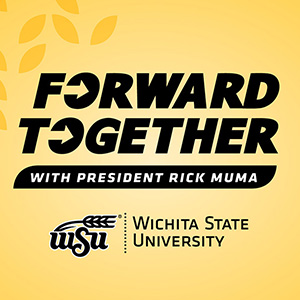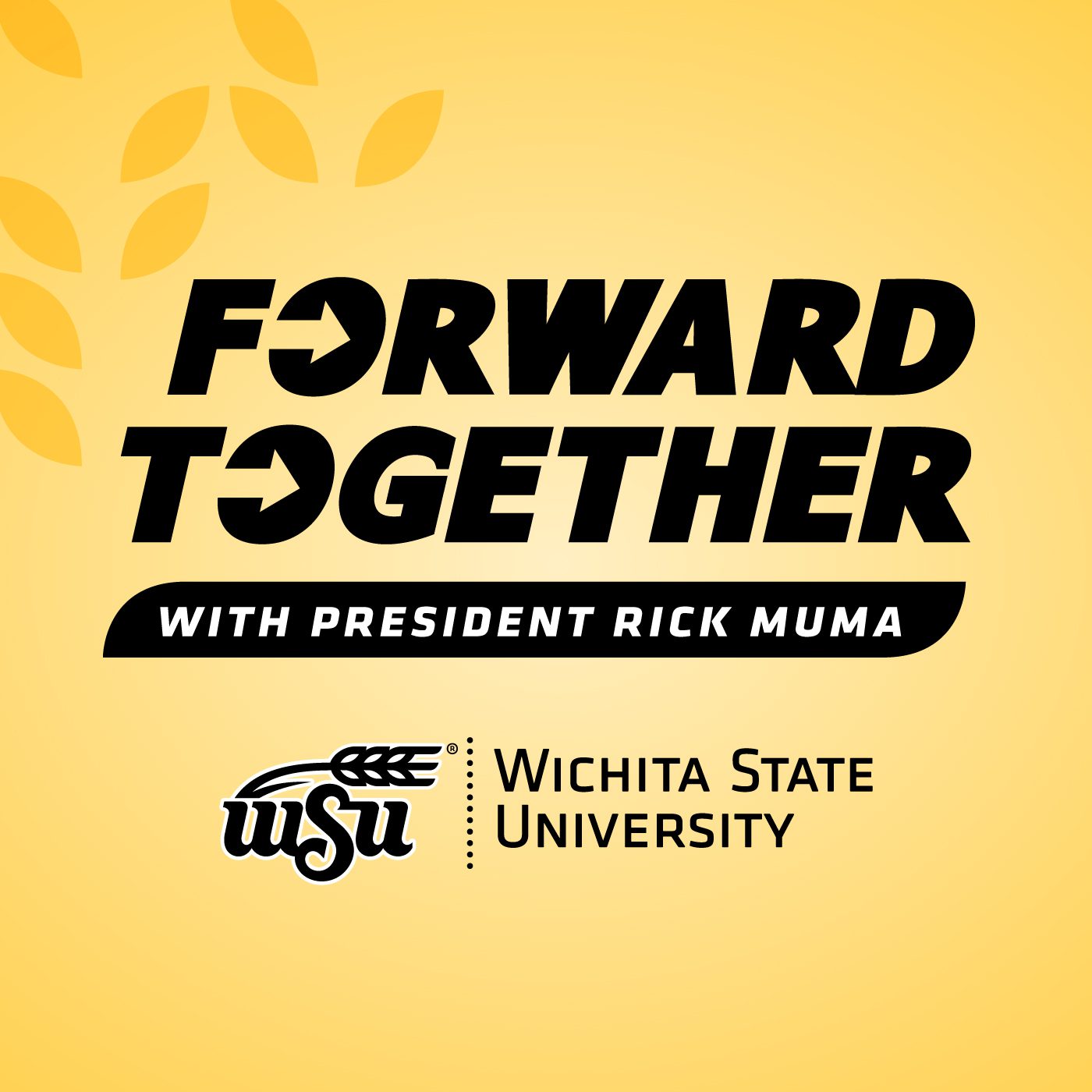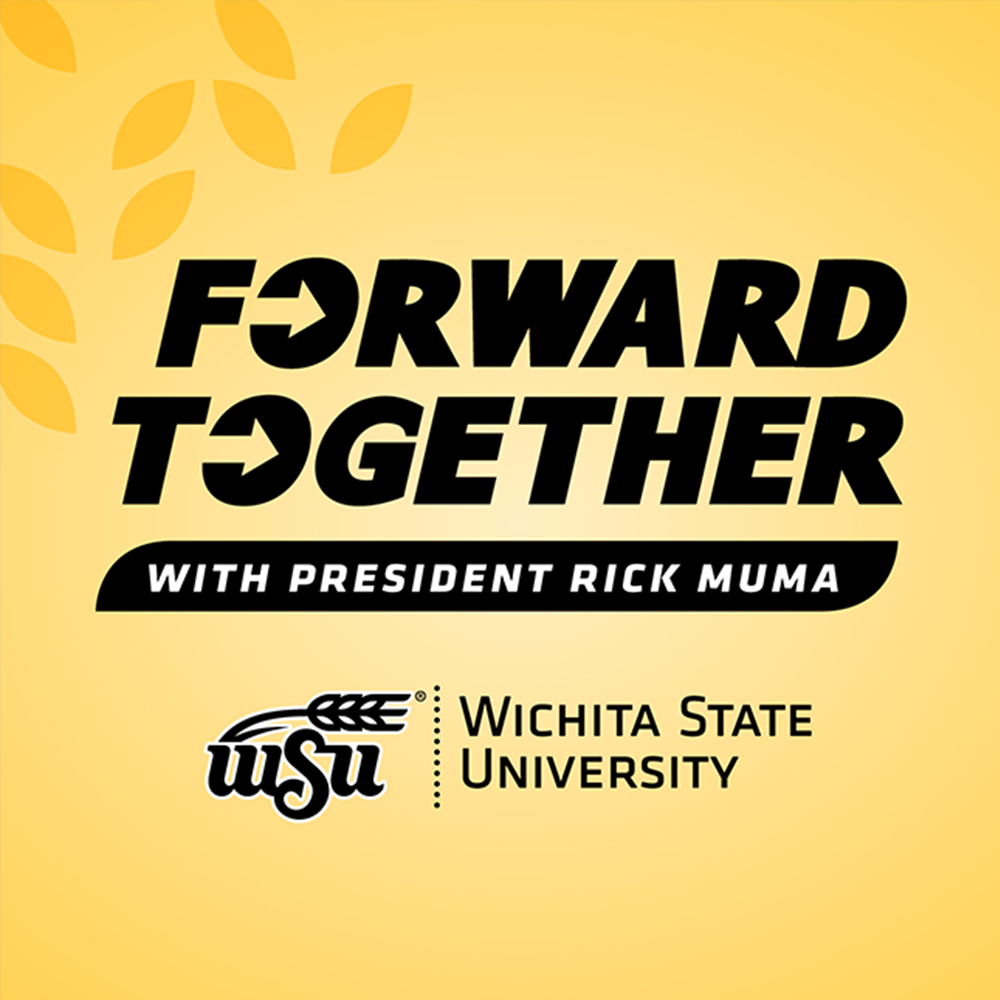Episode Transcript
Speaker 1 00:00:07 My guest today is Dr. Mona Nemer, the Chief Science Advisor for all of Canada. Dr. Nemer has served in this role since 2017, and she is charged with providing impartial scientific advice, the Prime Minister Justin Trudeau, but perhaps even more impressive than all of that. She has a proud member of Shocker Nation, having graduated from Wichita State with a Bachelor of Science and Chemistry and minors in French and Mathematics in 1977. And during the fall commencement, Dr. Nemer was presented with an HONORE doc group from Wichita State University. Well, it's so good to see you, Dr. Nemer. Thank you so much for, um, taking the time outta your schedule to come sit on this podcast, and we're looking forward to learning more about you and what you've been up to since you're here at Wichita State. So tell me about your job now. We've, we've chatted a little bit before, um, we recorded this, um, but, and tell me what led to where you are today, particularly how Wichita State, um, education helped lay the foundation for your career.
Speaker 2 00:01:10 Uh, thank you so much for having me. It's, uh, it's such an honor and immense pleasure to be back here on, uh, on campus, which has changed so much since I've been here, <laugh>. Uh, but, uh, the, the education I received in, uh, in, in, uh, at Wichita State University has really served me well. Um, I majored in chemistry. I had minor in, um, in math, but I took so many other, uh, classes in different, uh, in different, uh, disciplines, uh, which allowed me to meet, first of all people who are in these other disciplines. And also to really broaden my horizon at the time, uh, to graduate in chemistry, you even needed to have two language, uh, requirements. Mm-hmm. <affirmative>, uh, one was German and the other one was, uh, uh, Russian or, uh, French. Mm-hmm. <affirmative>. And I can tell you how even this has served me well during my graduate studies, when actually some of the older, uh, literature, which I needed was all written in German mm-hmm. <affirmative> and, uh, and in Russian. So, uh, once, once you go on this path of multidisciplinarity and you embrace so many different areas mm-hmm. <affirmative>, then you always want to find yourself in, in, in, in an area, you know, that is multidisciplinary mm-hmm. <affirmative> and, and so on. And that's very important.
Speaker 1 00:02:35 Well, we're gonna talk a little bit about, um, how maybe the, your, your language skills and in French come, come in handy to what you do today. So you came to Wichita State from Bur Beirut. How did you find out about W S U and what, what was appealing about the university, um, 40 years ago when you, when you came to the university?
Speaker 2 00:02:56 I came to the university, uh, during very difficult times in, uh, Lebanon. I fled the Civil War, uh, essentially, and I had just started my educa my university education at the American University of Beirut and wanted to continue my education in the American system. But, uh, coming to the United States, uh, by myself was, uh, very difficult for my parents to swallow. And they said, you can only go to places where we have family. And we did have family here in, in, in, in Wichita. Uh, and therefore I looked up the university applied, they accepted me, and, uh, here I am. Yeah.
Speaker 1 00:03:36 Well, we were talking earlier that, um, one of the things that many uni, uh, international University students tell us why they ended up selecting Wichita State, obviously had a connection, a family connection here, but they always say that Wichita State's, number one out of the gate to make an offer, um, to the
Speaker 2 00:03:54 Students. A and this, this was the case as well. Uh, for me, I applied to another place, the University of Florida, and, uh, Wichita was the first to, to send me the acceptance to my program mm-hmm. <affirmative>. So, uh, so that was of course my preference.
Speaker 1 00:04:11 Yeah. So, um, I'm sure you have a lot of memories about the university and of course your, your friends and your family that, that, that you had here. But could you talk a little bit about any of the faculty experiences that you had, some of the things that, that, that just really haven't left you, that you've carried forward, um, in your current career?
Speaker 2 00:04:31 Well, many, many things. Uh, first I remember the German class, <laugh> because, uh, not only were we learning German, but we were, uh, learning about the culture as well, and even how to sit in the, in the classroom. So that certainly left a, uh, a, a, a definite uh, uh, impression on me. In that class. I also met, uh, someone who was in, uh, studying French linguistics, and he became my best friend because he was interpreting to me all these English, uh, expressions mm-hmm. <affirmative> and, uh, uh, that I just like, didn't, didn't, didn't know, so mm-hmm. <affirmative>, uh, that was, uh, I, I was very fond of, uh, of that part. Um, spent a lot of time at, um, uh, at the library. Mm-hmm. <affirmative>, uh, the library was, uh, really a great place to, to study and, uh, and work. And I, I took many courses, so, uh, yeah, I was there very often.
Speaker 1 00:05:29 Yeah. Um, so we've, I've talked about, um, uh, the language, the French language, you just mentioned that again, one of the most impressive things about your, um, background, your current careers is how you are providing scientific, uh, scientific advice to the Prime Minister of Canada, Justin Trudeau. Tell us about that and how that is how your office interfaces with the Prime, prime Minister's office. What are some things that have been surprising to you? Some things that are challenging, covid related, that sort of thing?
Speaker 2 00:06:06 Yeah, of course. Before, before, uh, before joining, uh, before actually getting the, the, my job, I was at the university and I thought that universities moved, uh, slowly were siloed and so on. Mm-hmm. <affirmative>, I get into government and they make universities look really good. So government is very difficult, uh, in the sense that each department is, is really a li take a life of their own. They're very different from others. Uh, the Prime Minister has to work with, with, with the ministers who are responsible for these different ministries. So I have to work as well with all these, uh, different people. So that was quite, uh, quite interesting cuz they have their own cultures mm-hmm. <affirmative> and everything else. You also realize when you're working, when you're providing science advice, uh, to the minister, to the prime minister, first of all, I have to say that, you know, we have a Prime Minister who's really, uh, a champion of science and evidence-based, uh, policy.
Speaker 2 00:07:09 So that makes the job much more rewarding. Mm-hmm. <affirmative>, I wouldn't say it makes it easy, but it's makes more, more rewarding. But, uh, yeah. At, at this, uh, level of high office, they just have so many things to deal with. Uh, they're bombarded mm-hmm. <affirmative> by, by issues, uh, on a daily, uh, basis. So, um, you really have also to know how to interact with them to be, to be crisp, to provide them the information that they need to make the decisions that they need. Um, it's quite a learning experience during the Covid, um, my office was totally mobilized, uh, for Covid, of course, it, we needed a lot of science, but we needed a lot of policies and, um, uh, you know, these were quite horrific, uh, times. So, um, so we were providing sci both science, uh, advice in terms of, of different areas, uh, that needed to be, um, to be looked after, because of course, it wasn't only a health crisis, it was a, a social crisis mm-hmm. <affirmative> an economic crisis. It was an international crisis with issues on borders and everything else. So, um, it, it, it was, uh, it was quite, uh, intense, I would say. Uh, and, um, you know, you realize the difference between science and, and policy mm-hmm. <affirmative> in, in, in, in many ways, they're almost the opposites of each others,
Speaker 1 00:08:44 Right. Yeah. Well, I I, it, my role here as president and what you're doing for Canada is certainly not parallel, but one of the things as, as a, a healthcare provider myself and a background in public health, I'm, I'm, I'm asked to weigh in on particular issues. You know, it really helped steer the university through covid and, um, as you said, is challenging, um, at, at a university to do that. But one of the things that I, I did often was read about what was going on in the world, and, and Canada was one of those before I even made the connection of you, um, to the university. Um, one of the things I did is, is, is looked at what other countries were doing in Canada, was a good example of a really measured approach, I think. Um, and, and, uh, a common sense approach to how Covid was being managed in that country.
Speaker 2 00:09:35 Um, I agree with you. I, I mean, we didn't do everything, uh, perfect. Uh, and everybody was learning as they went. Uh, but it was a measured approach. And, uh, for, at least for the first two years of the pandemic, we managed to keep the public health, um, imperative away from the politics. Mm-hmm. <affirmative>, uh, and that was very helpful. So I just don't think it's a good, uh, thing when, when politics, uh, gets in the way of, uh, public health mm-hmm. <affirmative>, uh, whether it's prevention, whether it's treatment, whether it's, you know, guidelines. So, so, uh, that's very important and it requires a lot of discipline and a lot of will, uh, from the political side. Um, but it also requires the scientists and the public health community to mobilize to the, to provide the proper advice and to speak to the public as well. Mm-hmm. <affirmative>, that was very important.
Speaker 1 00:10:36 Yeah. Yeah. Communication was so important during that, that even when we did not have, you know, here at the university, all the answers, regular communication we saw was so valuable. People wanted that, they wanted that assurance. And, um, so yeah, that's, uh,
Speaker 2 00:10:52 We were all navigating uncertainties. Mm-hmm. <affirmative>, uh, people didn't know whether they're gonna be, uh, still alive in a month or so. Remember the horrific pictures we were getting from Europe and China before that mm-hmm. <affirmative>. So they, they were very trying times for everyone. Yeah.
Speaker 1 00:11:10 So, uh, change topics a little bit. Um, uh, when you received the word that we were gonna give you the honorary doctorate, what was your thoughts, um, um, what did you think about the opportunity to come back here and to receive that?
Speaker 2 00:11:23 Well, well, I mean, look, uh, I have goosebumps right now, just answering your question. I was super honored. Um, Wichita has a very special place for me. This is where really I started my North American life mm-hmm. <affirmative>, uh, not only career, and, uh, I haven't been here in, in a, in a while. So very wonderful opportunity to be back. But, uh, uh, I was very sensitive to, uh, the, the, to my alma mater actually, actually paying attention to me when I'm out in, uh, in Canada. Uh, but I think it's, um, it's, it's also an example of, uh, how many of the, of the international students that you have mm-hmm. <affirmative>, which that become your, your best ambassadors and, and go out and, and do things. Um, and, uh, what, what they learned here, both in terms of human values mm-hmm. <affirmative>, and of course, academic values actually guide them. So you have these, this impact way beyond Wichita and Kansas. Yeah.
Speaker 1 00:12:28 Well, I, I wanted to tell you probably don't know this, but I, uh, honor, age agrees are approved by our, uh, board of Regents, Kansas Board of Regents. And so I, um, had your bio that I, uh, stood up before them to get approval, and, and I have to tell you that they were really taking note of your accomplishments and we're very impressed, and, and we're, we're just thrilled that we have someone like you who, who's from this university that's gone on to be in this incredible role and all the work that you've done in your research over time. So, one final question. So you're in this incredible position, this position of some authority. What do you see the future and at least your world and, and, and some of the issues that, um, that you come across? What, what, what's your, um, prognostication, I guess?
Speaker 2 00:13:20 Well, uh, we have, uh, the, the pandemic, first of all is not completely over mm-hmm. <affirmative>, but the pandemic has also created, uh, lot of challenges in terms of social cohesion. Uh, it's a reminder also that, uh, we may have another pandemic due to climate change mm-hmm. <affirmative>, because now we're gonna start having pathogens and viruses that we haven't seen before, that we're not u used to mm-hmm. <affirmative>. Uh, but it's also a lesson on how to interact with the public, make sure that you're providing the proper information before this information, uh, gets in the way. So I'm very concerned actually, about disinformation, and I'm, uh, quite concerned to see how governments are going to tackle, are going to implement the ambitions that they have for climate change, which intersects with right. Human development and, and, and, and society. So, uh, I see interesting times ahead for scholars, scientists, policy makers to work together, uh, to better this world.
Speaker 1 00:14:25 Yeah. Well, I think we'll be in a little bit better hands with, with, with you there, um, helping guiding, um, some of this information and, and, uh, articulating it where people can understand where the Prime Minister can understand and other people on his staff to make good policy decisions for, for your country. And that will benefit all of us, uh, too in the long
Speaker 2 00:14:47 Run. Absolutely. And just to say that, uh, we have a network of science advisors in the G seven countries where we help each others mm-hmm. <affirmative>, we're in close touch, and I work very closely with my counterpart here in the United States at the White House office for Science and Technology. So, um, we're all in it together. Yeah.
Speaker 1 00:15:07 Yeah. That's great. Yeah. What's so good to meet you, thank you so much for, um, joining us today and, um, we'll look forward to maybe another podcast in the next couple of years.
Speaker 2 00:15:17 Was a great pleasure.
Speaker 1 00:15:18 Good to see you. Join me when I welcome my next guest, Stephen Lauper, a principal at Deloitte Consulting as we talk about Deloitte Smart Factory at Wichita, a groundbreaking, immersive learning environment for business leaders to experience smart manufacturing solutions. Thank you for joining me today, and remember to rate, review, and subscribe wherever you listen to the Forward Together podcast.


